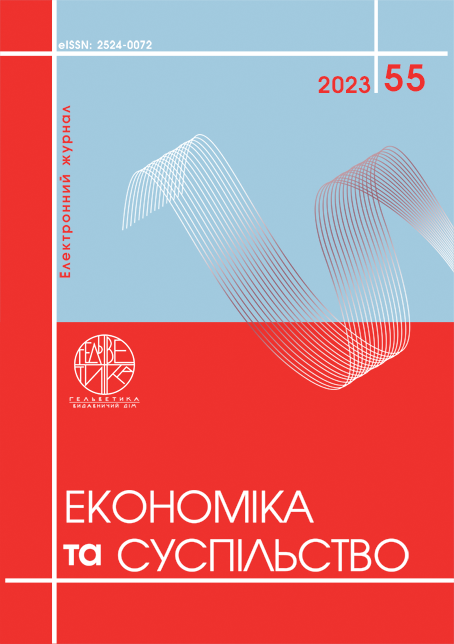MOTIVATION AS A COMPONENT OF THE MARKETING ACTIVITY OF THE ENTERPRISE
Abstract
The paper considers scientific and methodological approaches to the coverage of analytical problems of a modern hotel enterprise based on the basic concept of marketing, namely, the choice of approach for which the hotel institution forms its marketing activities. This approach emphasises the importance of meeting the needs of target markets and ensuring high level of satisfaction through more effective strategies than those of competitors. In order to achieve a positive result, it is necessary to properly develop and implement the marketing policy of an enterprise, one of the key components of which is employee motivation. Thus, staff motivation, namely the evaluation of the effectiveness of professional development, is an important step in the process of staff training, its purpose is to determine how much the company benefits from staff training, or whether one form of training is more effective than another. Taking into account the above, we offer the following results of the development of motivation measures, namely: the developed technology for improving the qualifications of the company's personnel; the efficiency of the trained employee will increase and the level of job satisfaction will increase; developed documentary support for professional development; overall work efficiency will increase. Taking into account the modern requirements of competitiveness and sustainable development of enterprises, studying the motivation of the role in marketing activities becomes important. The motivational aspect grows as a system of factors that stimulate the work team to achieve the strategic goals of the enterprise by forming a certain perception of the product or service by consumers. Taking this into account, a thorough analysis of motivational mechanisms allows not only to effectively form marketing strategies, but also ensures a balanced management of internal and external factors conducive to achieving a competitive advantage and increasing consumer loyalty. Thus, motivation acts as a key catalyst for the effectiveness of marketing activities, ensuring active interaction of the enterprise with the market environment and consumers to achieve strategic goals and increase its competitiveness.
References
Зайцева О. І., Фурсов А. М. Використання інструментарію маркетингу вражень в індустрії гостинності / О.І. Зайцева // Вісник Хмельницького національного університету. Серія: економічні науки.–2019.–№ 3.–С. 86–90.
Кулєшова Н.А. Модель оцінювання ефективності маркетингової стратегії туристичного підприємства / Н.А. Кулєшова // Економіка і регіон. – 2013. – № 2(39). – С. 58–64.
Бутенко Н. Ю. Соціальна психологія в рекламі / Н.Ю. Бутенко: Навч. посіб. — К.: КНЕУ, 2006.—384 с.
Перебийніс В.І. Менеджмент і маркетинг: навчальний посібник / Перебийніс В.І., Бойко Л.М., Писаренко В.В. та ін.; за ред. В.І.Перебийніса. – Полтава: ФОП Говоров, 2007. – 344 с.
Zaitseva O., Fursov A(2019)Vikoristannya instrumentariyu marketingu vrazhen v industriyi gostinnosti [The use of impression marketing tools in the hospitality industry]// Visnik Hmelnickogo nacionalnogo universitetu. Seriya: ekonomichni nauki.-2019.-No. 3.-P. 86¬90.
Kuleshova N.(2013) Model ocinyuvannya efektivnosti marketingovoyi strategiyi turistichnogo pidpriyemstva [Model for evaluating the effectiveness of the marketing strategy of a tourism enterprise]. Ekonomika i region. - No. 2(39) - P. 58¬64.
Butenko N.(2006) Socialna psihologiya v reklami[Social psychology in advertising] . Study guide -K.: KNEU, 2006.-384 p.
Perebyinis V.(2007)Vikoristannya instrumentariyu marketingu vrazhen v industriyi gostinnosti [Management and marketing: a textbook] / and others; edited by V.I. Perebyinis - Poltava: FOP Govorov,. 344 p.

This work is licensed under a Creative Commons Attribution 4.0 International License.


